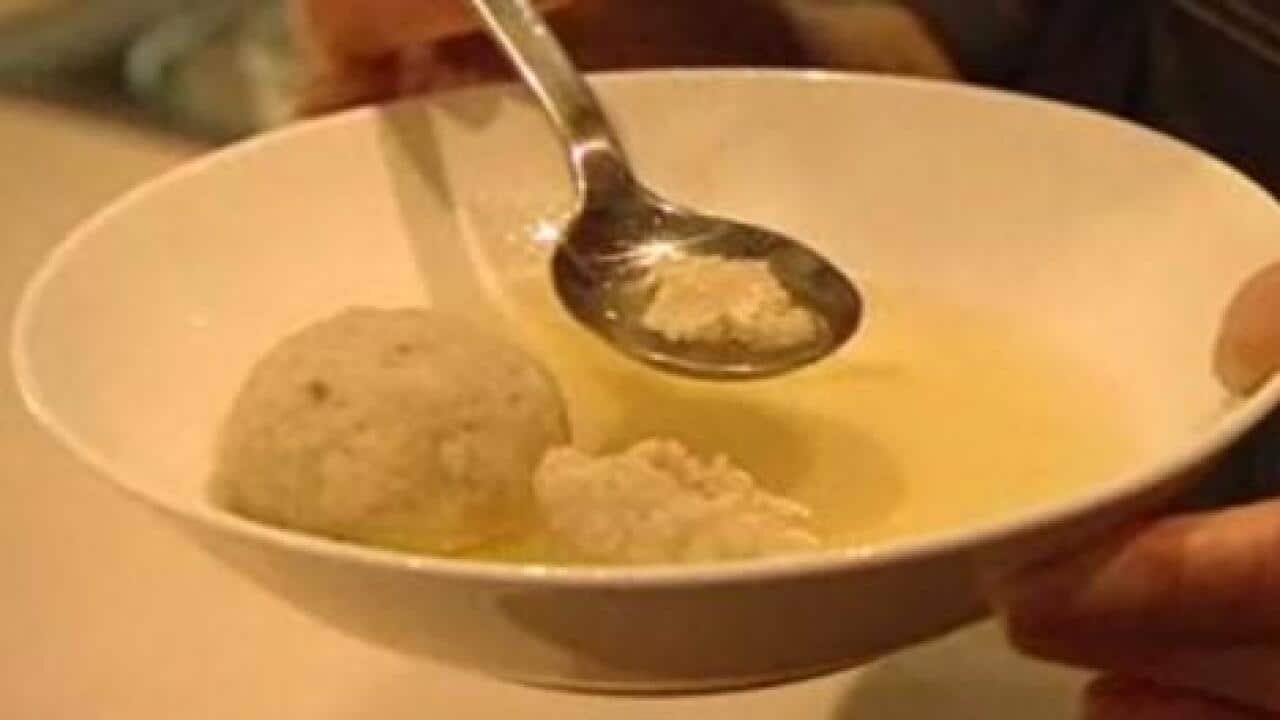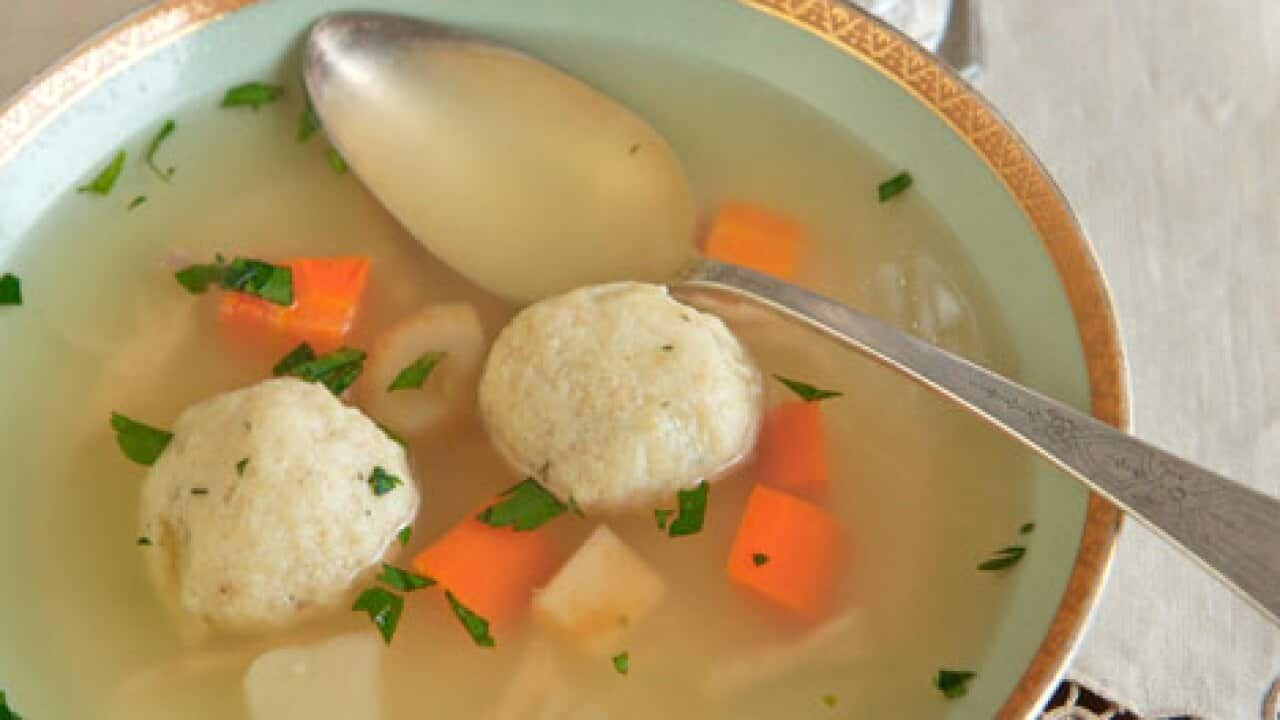The making of matzo is an 18-minute tradition that links communities around the globe.
Picture this: it’s more than 1000 years BC and millions of Jews are fleeing slavery in Egypt – there’s no time for their bread to rise. What to do? Eat unleavened bread, matzo or matzah (pronounced MUH-tz-UH ). It’s at Passover – – to remember the sacrifices made by their ancestors. “It’s a mitzvah (good deed) to eat matzo at Passover,” says Sydney psychology student Chana Markovits. “We eat matzo to connect with what these Jews did.”
If you’ve never eaten matzo before, the traditionally square or round flatbread is cracker-like in appearance and flavour and, while it might look simple – it’s made with only two ingredients: flour and water - its production is anything but. Kosher matzo-making is a tradition with many regulations.
Two types
Modern technology means there are stacks of machine-made matzot (plural of matzo) on the market, but handmade varieties are often superior in taste. There are also two types of matzo: , which is the holiest to eat during Passover. Shmurah matzo differs from regular matzo due to the supervision or ‘guarding’ (shmurah is the Hebrew word for ‘guarded’) by rabbis from the time the wheat is harvested to make sure the grain never comes in contact with moisture prior to becoming dough. If so, it can start a fermentation process that could turn the matzo into chametz, bread, which is forbidden during the eight-day festival.
This labour-intensive process means the cost of shmurah matzo is much more than regular matzo: about 450g of shmurah matzo can go for between $20 and $35, while the same size box of ordinary matzo in the Coles Kosher aisle is about $5. All shmurah matzo in Australia is now imported, and even local manufacturing of regular matzo ceased when the Solomons matzo factory shut shop in 2011 after more than a century in business due to increasing production costs.
As for man-made versus machine-produced matzo, it depends. Some very observant Jews say handmade is preferable as making matzo should be intentional and machines don’t have intent, while other Jews say machine automation means less chance of matzo turning into chametz.

Machine-made matzo on a seder table. Source: Getty Images
The 18-minute rule
One thing’s for sure: matzo must be made fast so there’s no chance of fermentation. The dough should be in a constant state of motion, being kneaded right until it’s transferred to a super-hot oven on long poles. Apparently, it takes at least 18 minutes for the dough to turn into chametz, so the process of making matzo – from mixing to baking - should take no more than 18 minutes. Even if it’s machine made, equipment is thoroughly cleaned every 18 minutes.
According to Sydney Rabbi Eli Feldman, there are about 10-20 shmurah matzo factories in the world – mainly in the US, Israel and Ukraine - supplying the Jewish community globally. However, every year in Australia there are many matzo bakeries organised for educational purposes to get children and the wider community involved in making matzo together. “Participating in matzo bakes makes you feel like a continued link a chain,” says Rabbi Feldman. “It’s a feeling of being part of history and an ongoing story.” Chana believes this is wonderful for kids, too. “With no shmurah matzo factory in Australia, kids don’t get to see it being made,” she says. “It’s beautiful to teach kids this aspect of Passover and to give them a hands-on experience.”
Bake or buy?
If you want to try your hand at making matzo, look out for community matzo-making events, which often happen in the weeks leading into Passover each year, or search . Sure, these matzot may not be rabbinically approved, but it’s fun and that’s what cooking’s about in our book.
To buy regular matzo, specialist retailers and some supermarkets sell Kosher products, or to purchase shmurah matzo go to a synagogue, Kosher supermarket - such as Krinsky’s in Bondi, Sydney – or buy online from . And yes, you can even buy spelt and gluten-free varieties.

![Students of Yeshiva [a Jewish religious institution of higher education] learn cooking matzo in Moscow](https://images.sbs.com.au/dims4/default/fc84f9c/2147483647/strip/true/crop/1200x675+0+63/resize/1280x720!/quality/90/?url=http%3A%2F%2Fsbs-au-brightspot.s3.amazonaws.com%2Fdrupal%2Ffood%2Fpublic%2Fstudent-makes-matzo-gettyimages-664944230.jpg&imwidth=1280)



